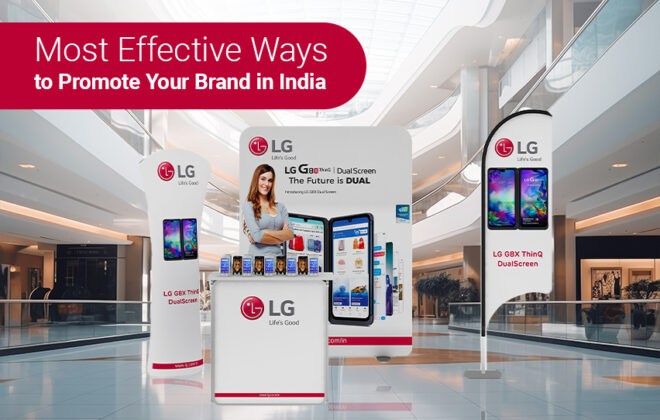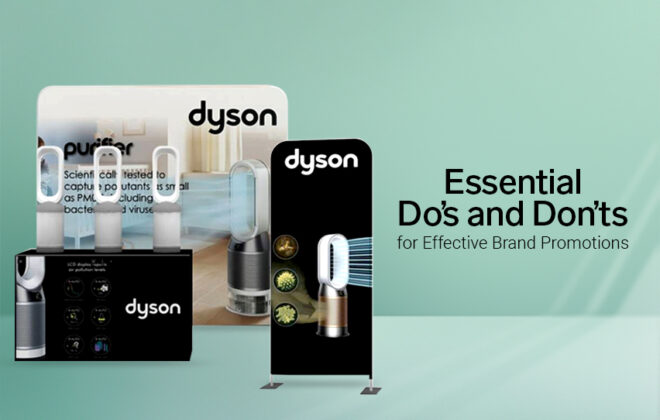Innovative BTL Activity Setups and Creative Ideas for Maximum Impact
In today’s vibrant marketing landscape, BTL (Below-The-Line) activities have emerged as a powerful tool for brands to engage with their audience. Unlike mass media campaigns, BTL strategies focus on targeted and experiential interactions that create lasting impressions. Whether through mall activation or corporate events, brands…
Why Modular Display Stands Are the Smart Choice for Exhibitions?
In the fast-paced world of exhibitions and brand activations, businesses are seeking smart, flexible, and cost-effective ways to stand out. That’s where modular display stands come in. These versatile displays have transformed the way brands showcase their products and services at events. Unlike traditional, bulky…
On-Ground Activation: The Key to Creating Memorable Brand Experiences
In a world where brand promotions depend on digital marketing, on-ground activation remains a crucial strategy for brands looking to build strong connections with their audience. Unlike virtual campaigns, these activations allow for real-time, face-to-face interactions, offering customers a first-hand experience of products or services….
Roadshows: A Powerful Strategy for Brand Engagement
Marketing is evolving constantly, and brands need to stay ahead by adopting innovative strategies that create direct audience engagement with their audience. One such effective strategy is roadshows – a dynamic type of brand promotion that takes marketing campaigns on the move. Unlike traditional events…
Redefining Brand Promotion for 2025: Top Trends and Strategies
As we move into 2025, the dynamics of brand promotion are evolving at a faster pace. With rapid advancements in technology and changing consumer expectations, businesses must rethink their approaches when it comes to engaging with their audiences. The traditional methods of brand promotion are…
How to Attract and Retain Customers with Effective Brand Activation
In today’s fast-paced, competitive business world, connecting with customers has become more important than ever. Amidst the noise of advertisements and promotional messages, standing out needs more than using clever taglines or catchy visuals. This is where the role of brand activation comes into play….
Pop-Up Displays: A Versatile Solution for Events
In the ever-evolving exhibition landscape, businesses are seeking innovative ways to capture attention and communicate their brand message. Pop-up displays have emerged as an impactful solution, offering a blend of convenience and aesthetic appeal. These displays have revolutionised the way brands present themselves at events,…
Why Investing in Brand Activation Kits is Essential for Your Business?
In the ever-evolving landscape of modern marketing, businesses constantly seek innovative ways to connect with their target audience. Consumers are demanding more personalised and engaging experiences. This shift has led to the rise of brand activation, a strategy that focuses on bringing brands to life…
The Ultimate Guide to a Strong Brand Activation Campaign
In today’s highly competitive market, creating a memorable and impactful presence for your brand is more important than ever. This is where brand activation comes into play. It is all about bringing your brand to life, engaging directly with your audience, and creating an emotional…
BTL Activities to Maximize Your Audience Engagement
In the dynamic world of marketing, Below-The-Line (BTL) activities have become a cornerstone for brands aiming to enhance direct consumer engagement and build lasting relationships. Unlike traditional mass media marketing strategies, BTL activities focus on direct communication with the target audience through personalised interactions. This…
Most Effective Ways to Promote Your Brand in India
Brand promotion in any flourishing market is a dynamic challenge that requires an innovative blend of traditional and modern strategies. With its vast yet varied cultural landscape, India offers unique opportunities and obstacles for marketers aiming to make a significant impact. Effective brand promotion in…
Essential Do’s and Don’ts for Effective Brand Promotions
In today’s competitive market, promoting your brand effectively is crucial to standing out and capturing the attention of your target audience. The landscape of brand promotion has evolved significantly, with digital platforms and advanced analytics playing a major role in shaping how businesses reach and…













